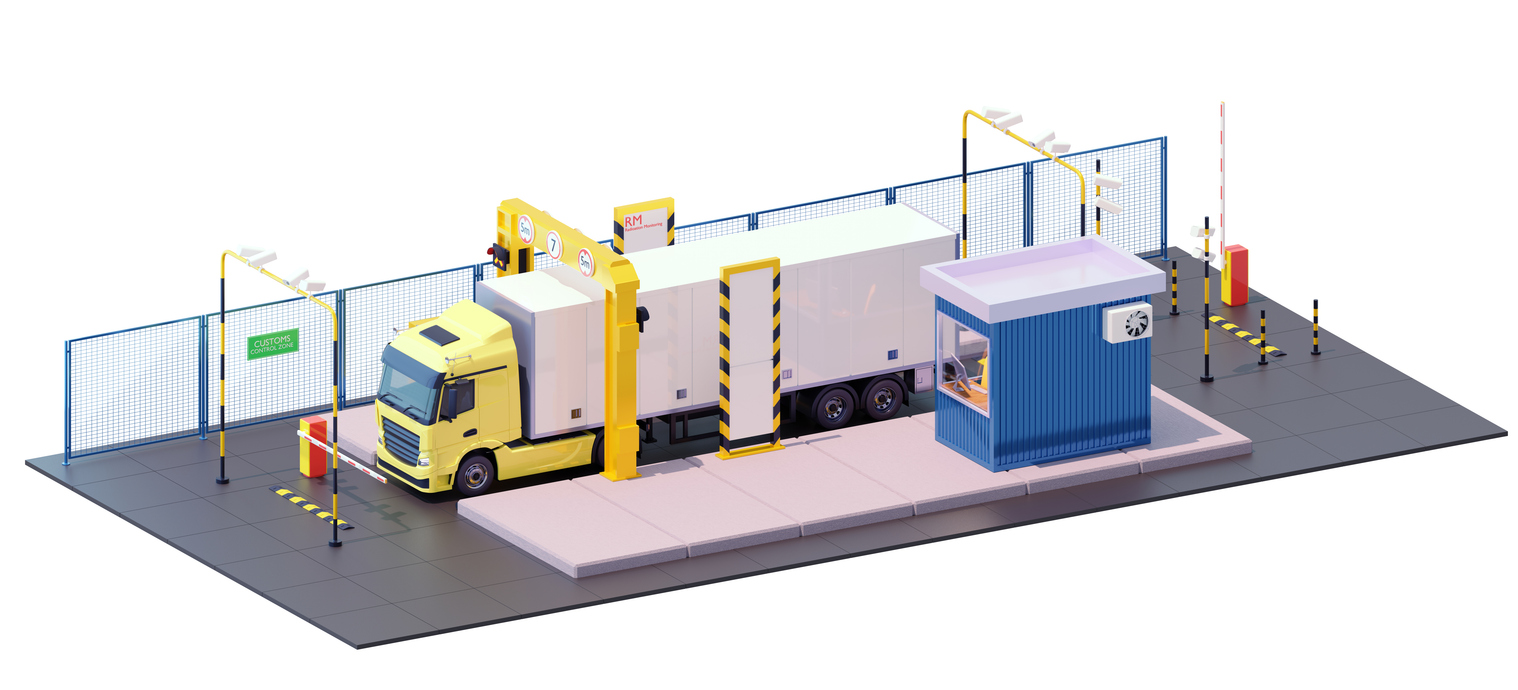Navigate the Complexities of Nigerian Trade Regulations with Ease: Let Wigmore Trading Handle Your Licence Requirements
Navigate the Complexities of Nigerian Trade Regulations with Ease: Let Wigmore Trading Handle Your Licence Requirements
Are you an entrepreneur or business owner looking to expand your operations into the vibrant Nigerian market? With its booming economy and untapped potential, Nigeria offers countless opportunities for growth. However, navigating the intricacies of trade regulations can be a daunting task, slowing down your progress and causing unnecessary headaches. But fear not! Introducing Wigmore Trading – your trusted partner in handling all your licence requirements smoothly and effortlessly. In this blog post, we’ll explore how Wigmore Trading can help you cut through the red tape and pave the way for seamless trade in Nigeria, empowering you to focus on what truly matters – growing your business.
Introduction to Nigerian Trade Regulations
Introduction:
Nigeria is the largest economy in Africa and offers a wide range of opportunities for international trade. However, like any other country, Nigeria has its own set of trade regulations that need to be followed by businesses looking to import or export goods. These regulations are essential for the smooth functioning of the trade industry and ensure fair competition among traders.
In this section, we will provide an overview of Nigerian trade regulations, including their purpose and importance in the country’s economic landscape.
Purpose of Nigerian Trade Regulations:
The primary purpose of Nigerian trade regulations is to protect local industries and promote economic growth. These regulations are designed to balance the interests of domestic producers with those of foreign investors while also ensuring fair trade practices.
Another important aim of these regulations is to safeguard public health and safety by regulating the quality standards of imported goods. This helps prevent substandard products from entering the market and posing a risk to consumers.
Importance in Nigeria’s Economic Landscape:
Trade plays a crucial role in Nigeria’s economy, accounting for about 30% of its GDP. The country depends heavily on imports for raw materials, machinery, and consumer goods, making it imperative to have well-defined trade regulations in place.
These regulations help create a level playing field for both domestic and foreign traders by preventing monopolies or unfair business practices. They also serve as a tool for revenue generation through duties imposed on imported goods.
Importance of Licences for Importing and Exporting in Nigeria
Introduction:
Navigating the trade regulations in Nigeria can be a complex and overwhelming process, especially when it comes to obtaining licences for importing and exporting goods. These licences play a crucial role in facilitating international trade and ensuring compliance with the country’s laws and regulations. In this section, we will discuss the importance of licences for importing and exporting in Nigeria.
Ensures Compliance with Laws and Regulations:
One of the primary reasons why licences are essential for importing and exporting in Nigeria is that they ensure compliance with the country’s laws and regulations. The Nigerian government has strict rules and regulations in place to regulate international trade, such as customs duties, taxes, quotas, and product-specific restrictions. Obtaining the necessary licenses helps importers and exporters comply with these laws and avoid any legal repercussions.
Facilitates International Trade:
Licences are also vital for facilitating international trade by streamlining processes such as customs clearance, documentation requirements, cargo inspections, etc. Without proper licensing, shipments may get stuck at ports or face delays due to non-compliance issues. This not only leads to increased costs but also hampers business relationships with foreign partners.
Protects Local Industries:
Another crucial aspect of obtaining licenses for importing goods into Nigeria is that it protects local industries from unfair competition. The government issues import licenses based on specific criteria such as domestic production capacity, product demand-supply gap analysis, etc., which helps protect local industries from being flooded by imported goods.
What is Wigmore Trading?
Wigmore Trading is a premier Nigerian trading company that specializes in handling all aspects of trade regulations and licensing requirements. With over 20 years of experience in the industry, Wigmore Trading has established itself as a trusted and reliable partner for businesses looking to navigate the complexities of Nigerian trade regulations.
At its core, Wigmore Trading is dedicated to facilitating smooth and efficient trade operations for both local and international businesses. The company offers a wide range of services that cover every stage of the import/export process, from obtaining necessary licenses and permits to facilitating customs clearance and logistics.
One of the key advantages of working with Wigmore Trading is their deep understanding of Nigerian trade laws and regulations. The country’s business environment can be quite complex, with many rules and procedures that can be challenging to navigate for those unfamiliar with them. However, Wigmore Trading has extensive knowledge and experience in dealing with these regulations, making it easier for businesses to comply with them.
Additionally, Wigmore Trading has built strong relationships with government agencies involved in trade regulation processes. This allows them to expedite the application process for various licenses and permits, reducing wait times significantly. This advantage is especially crucial when time-sensitive shipments need quick clearance at ports or airports.
Another significant benefit offered by Wigmore Trading is their personalized approach towards each client’s needs. They understand that every business has unique requirements when it comes to trade operations, which is why they tailor their services accordingly.
Services Offered by Wigmore Trading for Licence Requirements
Wigmore Trading offers a wide range of services to assist businesses in navigating the complexities of Nigerian trade regulations and ensuring compliance with licence requirements. These services are designed to alleviate the administrative burden and streamline the process of obtaining necessary licences for importation, distribution, and exportation activities.
1. Licence Consultation: Wigmore Trading provides expert consultation services to help businesses understand the various licence requirements for their specific trade activities. Our team of experienced professionals keeps up-to-date with the latest changes in Nigerian trade regulations and can advise on which licences are needed for your business operations.
2. Licence Application Assistance: Applying for a licence can be a time-consuming and complicated process. We offer assistance with completing and submitting all necessary documentation to ensure that your application meets all requirements and has the best chance of being approved.
3. Import Licences: One of the most common types of licences required for businesses in Nigeria is an import license. This is necessary for any goods or products that are being brought into the country from abroad. Wigmore Trading can help you obtain an Import License from relevant government agencies such as Nigerian Customs Service (NCS) or Standards Organization of Nigeria (SON).
4. Distribution Licences: If your business involves distributing goods within Nigeria, you may need a distribution licence from relevant authorities such as National Agency For Food And Drug Administration And Control (NAFDAC). Our team can assist with obtaining this type of licence, ensuring all necessary regulations are met.
Step-by-Step Guide to Obtaining Import and Export Licences with Wigmore Trading
Step-by-Step Guide to Obtaining Import and Export Licences with Wigmore Trading
Importing and exporting goods in Nigeria requires the necessary licences and permits from various government agencies. These documents not only ensure compliance with trade regulations but also provide a smooth flow of goods in and out of the country.
At Wigmore Trading, we understand that obtaining these licences can be a complex and time-consuming process. That’s why we offer our clients a one-stop-shop solution for all their licence requirements. Our team of experts has extensive knowledge and experience in navigating the Nigerian trade regulations, making it easier for businesses to focus on their core operations.
In this step-by-step guide, we will walk you through the process of obtaining import and export licences with Wigmore Trading.
1. Identify Your Product Category
The first step in obtaining an import or export licence is to determine your product category. Different products require different types of licences from different authorities. For example, agricultural products may require a permit from the National Agricultural Seeds Council (NASC), while pharmaceuticals may need approval from the National Agency for Food & Drug Administration & Control (NAFDAC).
Our team at Wigmore Trading will work closely with you to identify the specific product category and ensure that all necessary permits are obtained before importing or exporting.
Benefits of Using Wigmore Trading for Licence Requirements
At Wigmore Trading, we have a deep understanding of the complexities involved in navigating Nigerian trade regulations. Our team of experts is dedicated to providing top-notch services that will help streamline the process of obtaining licences and permits for businesses looking to import or export goods in Nigeria.
Here are some of the key benefits of using Wigmore Trading for your licence requirements:
1. Extensive Knowledge and Experience:
Wigmore Trading has been operating in Nigeria’s trading industry for over 30 years, giving us a wealth of experience and knowledge about local laws and regulations. Our team is well-versed with all the necessary paperwork, procedures, and requirements needed to obtain licences, permits, and certifications from relevant government agencies such as NAFDAC (National Agency for Food and Drug Administration Control), SON (Standard Organization of Nigeria), and more.
2. Time-Saving:
Obtaining licences can be a time-consuming process that involves several steps such as filling out forms, submitting documents, paying fees, etc. With Wigmore Trading on your side, you can save valuable time by entrusting us with these tasks while you focus on other crucial aspects of your business.
3. Cost-Effective:
The process of obtaining licences can also be costly if not done correctly or through the right channels. We at Wigmore Trading have established relationships with relevant government agencies which enable us to expedite the licensing process without incurring unnecessary costs.
Conclusion: Simplify Your Trade Journey with Wigmore Trading’s Licence Expertise
Conclusion: Simplify Your Trade Journey with Wigmore Trading’s Licence Expertise
Navigating the complex world of Nigerian trade regulations can be a daunting task, especially for businesses looking to expand their operations into this dynamic market. The various licence requirements and procedures can seem overwhelming, leading to delays and difficulties in obtaining necessary permits. However, with Wigmore Trading’s expertise in handling licence requirements, businesses can simplify their trade journey and focus on growing their operations.
Wigmore Trading is a leading company in Nigeria that specializes in providing support services for trade and investment activities. With over 20 years of experience, they have developed an extensive understanding of the Nigerian business landscape and are well-equipped to handle all aspects of the licence application process.
One of the biggest advantages of working with Wigmore Trading is their deep knowledge and understanding of Nigerian trade regulations. They stay updated on any changes or updates to these regulations, ensuring that your business stays compliant at all times. This expertise allows them to provide accurate guidance and advice on which licences are required for your specific industry or type of business.
Another benefit of partnering with Wigmore Trading is that they streamline the entire licence application process for you. They will handle all documentation preparation, submission, follow-ups, and communication with relevant authorities on your behalf. This not only saves you time but also eliminates any potential mistakes or delays due to lack of knowledge about the application process.







Comments are closed.